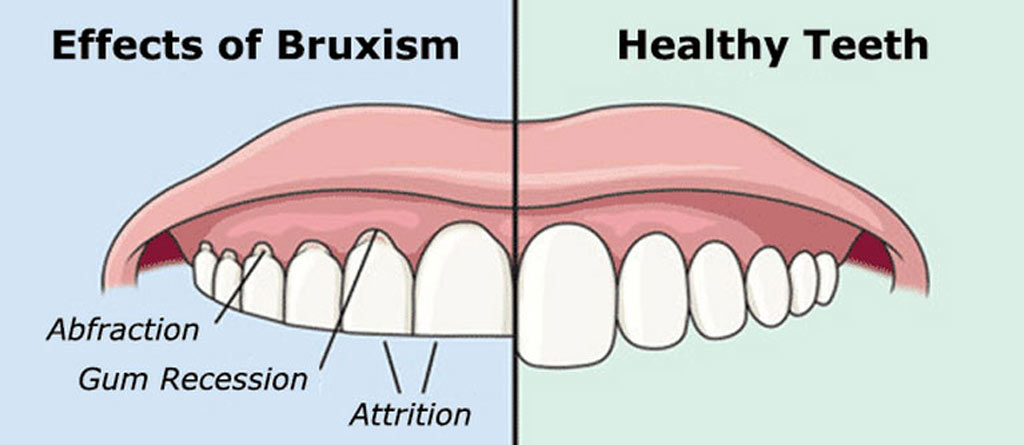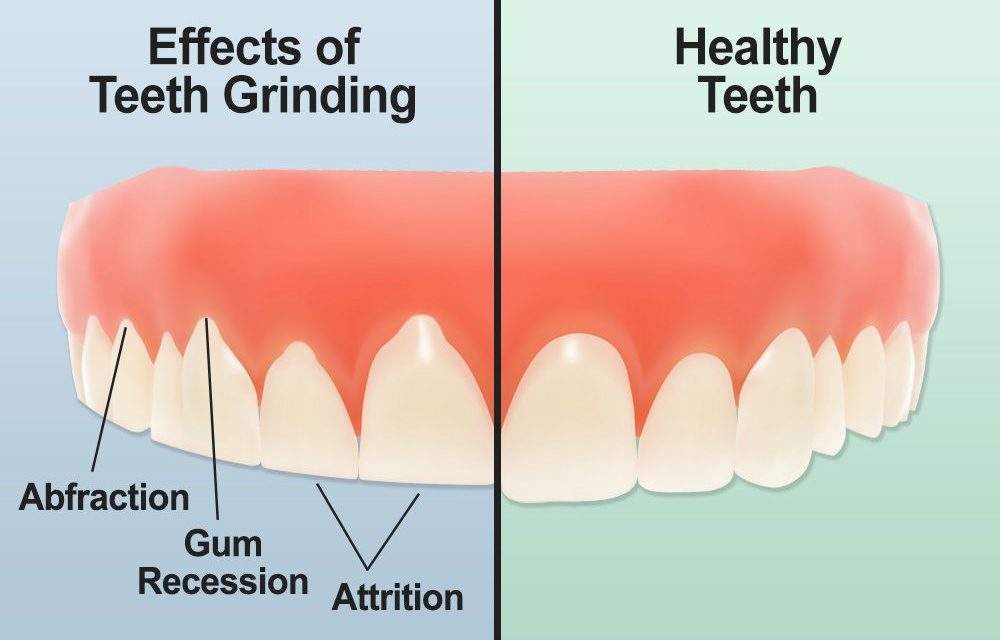Bruxism, or teeth clenching and grinding, is something that can affect both adults and children. Here’s what you need to know about bruxism, and what it means for you.
The symptoms
There are certain symptoms of bruxism that you may not be familiar with.
They include:
- Jaw muscle clenching
- Jaw muscles that feel painful or tight.
- Clicking or popping new the TMJ
- Pain near your face
- Grinding at night, especially in shared rooms
- Headaches
- Teeth that are damaged, fillings that are broken, and gums which are injured
- Swelling near the lower jaw
The causes
There are certain causes that may possibly be a part of a habit, however, there also may be underlying conditions that play a role in the reason why you have bruxism.
This can include one of the following:
- Anxiety, frustration, stress and anger
- Malocclusion or bite that is incorrect
- Some diseases of the nerves and the facial muscles
- It can sometimes happen if you take Prozac, Zoloft, or Paxil, since this is a rare side effect
- Huntington’s or Parkinson’s disease
The prevention and diagnosis
The diagnosis is usually found when you’re in for a dental treatment. Most of the time, this is not something that are aware of, and it can cause wear and tear of the teeth, TMJ disorders, and the like, so you should ta lot the dentist about this, so that if there I s an underlying condition, it’s fixed readily.
Prevention of this is simple. therapy, stress relief, and other techniques may help with this. If you have too many stimulants, the solution may be to reduce these.
The simplest way to treat this usually is through using a night guard, which prevents the scraping of the teeth. You also may need to get crowns and fillings to offer the right size and shape of your teeth.

You also may need to use biofeedback to help with daytime grinding, especially if you have activity of the muscles. This also is used to reduce the force of the bite, especially when this becomes quite extreme. In some cases, hypnosis may also help with sleep bruxism as well, since this can help those who suffer from it.
Other conditions
Those who have sever bruxism that damages the fillings through clenching and grinding may also struggle with their enamel, causing the outer parts of this to wear down, which increases the sensitivity of the tooth.
Sever bruxism is something that you don’t want to have as it ca cause a lot of problems.
Most people who suffer from this have some form of jaw problems, also known as TMJD in some cases.
There are also headaches, pain that is not explained, and some people may experience problems when talking or even biting down on foods due to the bruxism that they’re dealing with.
The solution to this is incredibly simple. that is of course, to treat the bruxism at the core, to work on trying to make sure that if there is a problem, you do something about this.

If you notice that you’re doing this due to stress, then take some time, work on different stress relief techniques, and then go from there.
For a lot of people, bruxism is something that’ll definitely change the way things happen in life, and that grinding is not healthy for you. Luckily though, with the right treatments and different ways to handle this, you can stop bruxism before it gets worse, and feel better about your mouth in the process too.